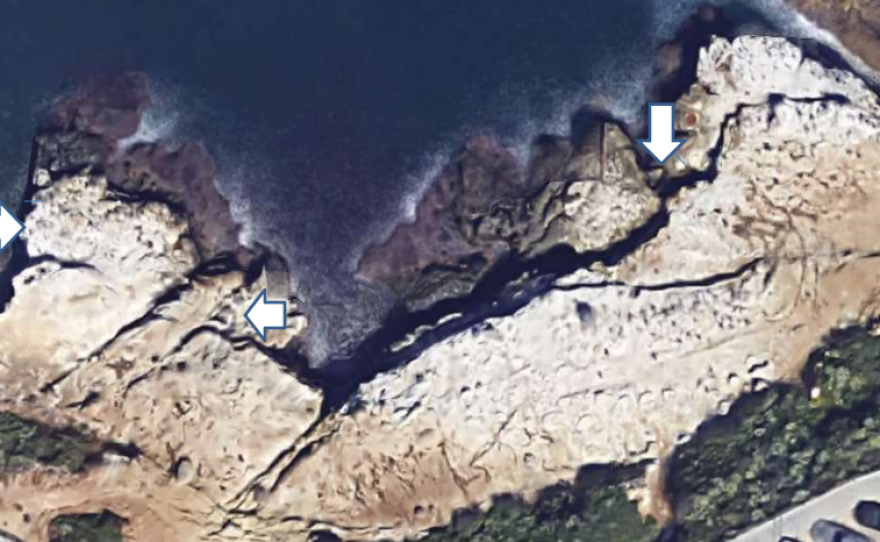A group of La Jolla residents and business owners are proposing a new way of keeping sea lions off the bluffs at La Jolla Cove: setting up rotating plastic cylinders that will roll the marine mammals off the rocks as they try to jump out of the water.
Steve Haskins, president of the La Jolla Town Council, hopes the "Marine Mammal Safety Barrier" will solve the problem of a powerful stench from sea lion droppings that has plagued the coastal area for years.
"It will also deal with the problem of people getting too close to sea lions, which are wild animals," he said.

The barriers are a perfect solution to Haskins because they are simple.
"It's very low tech, it doesn't require ongoing electricity, or chemicals, it's not plugged into anything," he said. "It's simply a barrier made of inflatable cylinders that sea lions should not be able to pass over. At the same time, they're not going to get caught in it, they're not going to get hurt and it will separate people from sea lions."
The idea came from the five-member La Jolla Town Council Coastal Committee, which presented its recommendation to the full town council Tuesday night. Haskins said the members will seek support from the town council and other La Jolla organizations. If they get support, they will then ask the San Diego City Council to apply to the California Coastal Commission for the project's approval.
The barriers are a little more than 4 feet tall and would be made of rotating plastic cylinders fixed on stainless steel cables suspended from stainless steel posts. The posts would be inserted into holes drilled into the sandstone, and the cylinders would be painted to match the rocks and would not have sharp edges, Haskins said.
They would also have a one-way safety release that would allow sections of the fence to open so sea lions who are caught on the bluffs can get back into the ocean.
Rolling barriers are already used on coyotes and cats, Haskins said.

The committee also considered other options for mitigating the stench problem before deciding on the rotating barriers as their preferred method. Alternatives included a fake orca to scare away the sea lions, an ultrasonic acoustic fence installed underwater and mats that give off small electric shocks to the animals.
But Haskins said a fake floating orca used in Washington nearly sank, the acoustic fence's effect on humans is unknown and the electric mats are viewed as inhumane.
Bird and sea lion poop has built up on the bluffs overlooking La Jolla Cove for years. Residents say the smell started when a fence was put up along the cliffs, which allowed birds and sea lions to congregate on the beach without being disturbed. Three years ago, then-Mayor Bob Filner stepped in to fix the problem, hiring a company called Blue Eagle Distribution to spray its bioactive product on the bluffs.
But that wasn't often enough to alleviate the smell.
Two years ago a group of business owners who call themselves Citizens for Odor Nuisance Abatement filed a lawsuit that argued the city is responsible for cleaning up the stench. It was tossed out, but the group's lawyer, Norm Blumenthal, said he will file an appeal.
San Diego Mayor Kevin Faulconer recently told the city's Parks and Recreation Department to boost the number of times a month Blue Eagle's bacteria-filled spray is applied to the rocks from two to three.
Tim Graham, a spokesman for the city, said each spray session costs $2,400 for the two bluffs at the cove, so the city is now spending $7,200 a month cleaning poop. Graham said the amount is low enough that the city hasn't needed to put out a public bid on the job.
But Haskins said the spray works better on droppings from birds, not sea lions, and the enzymes in the spray are not always effective at clearing the air of smell.






